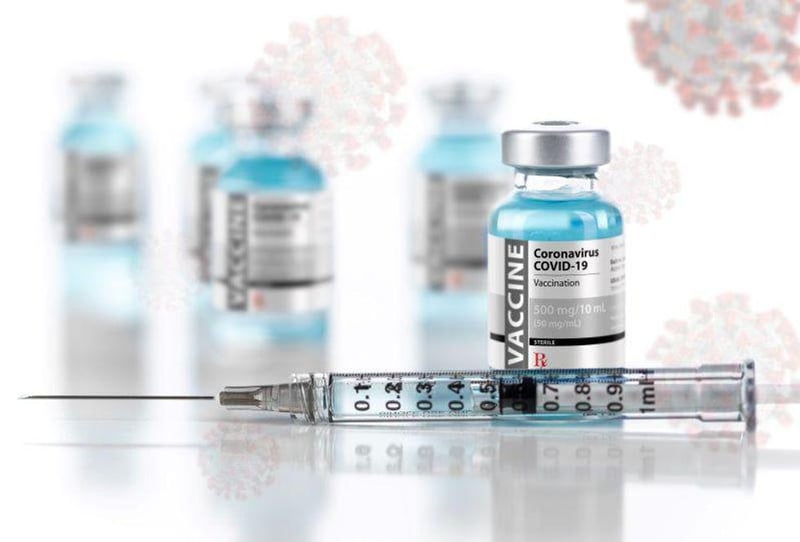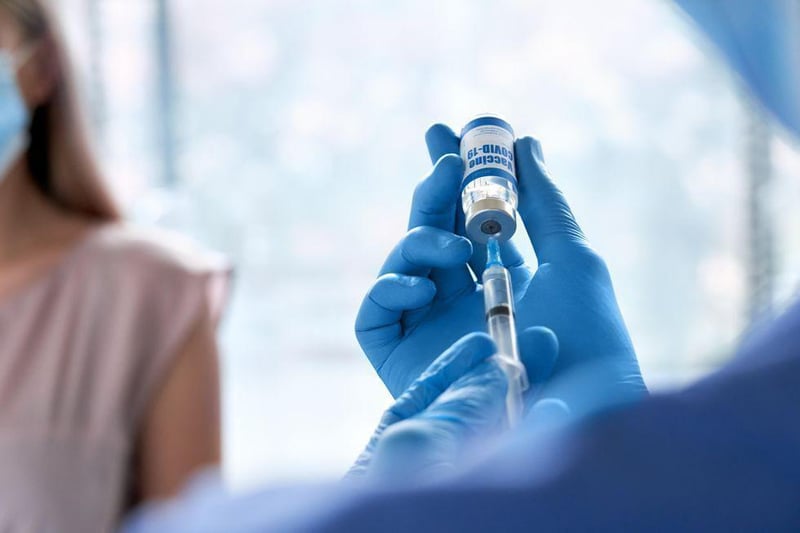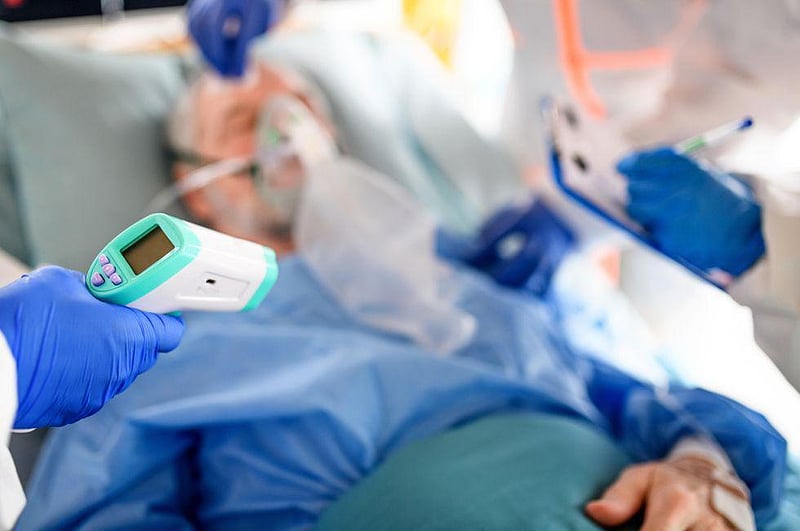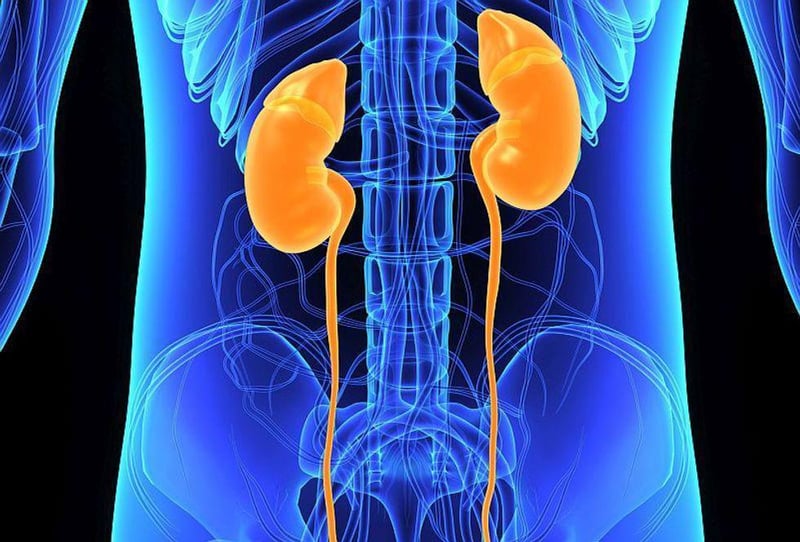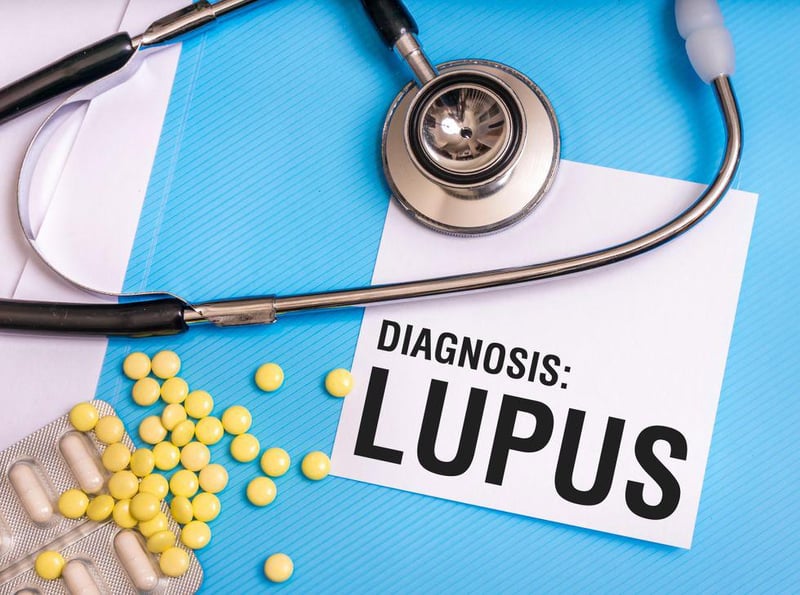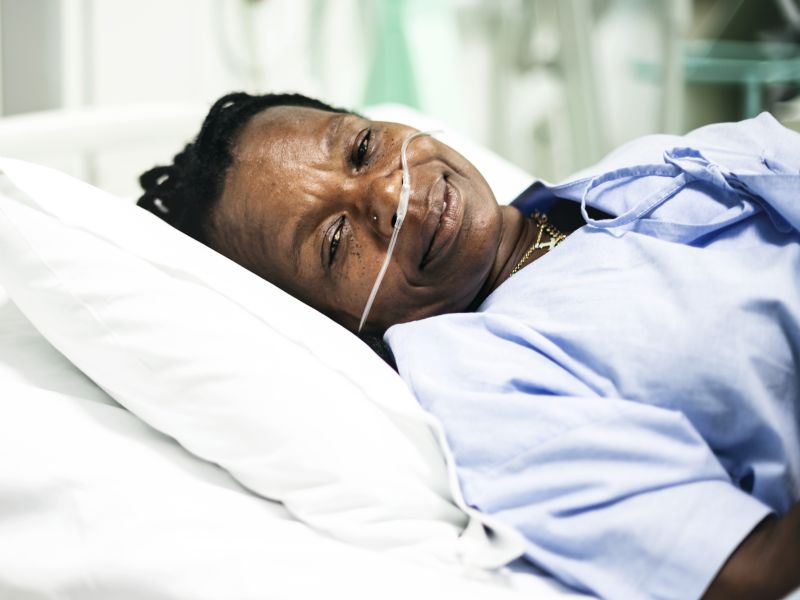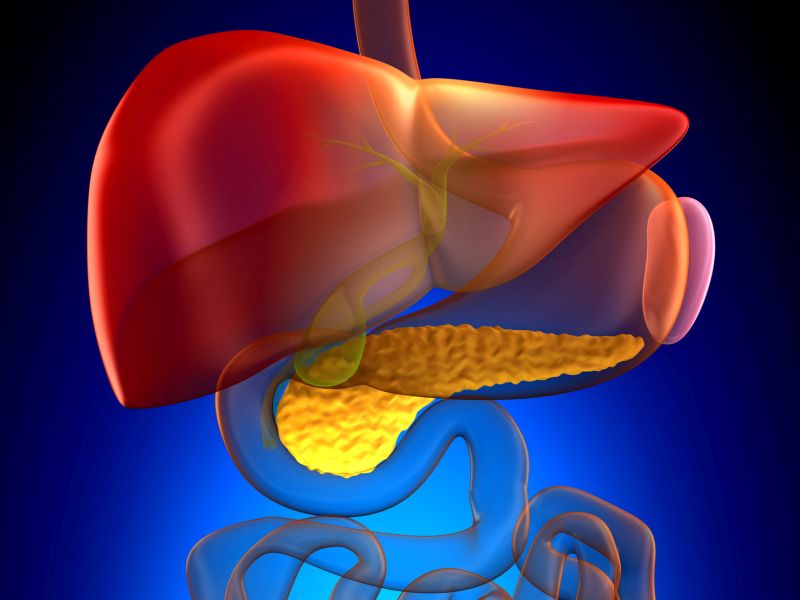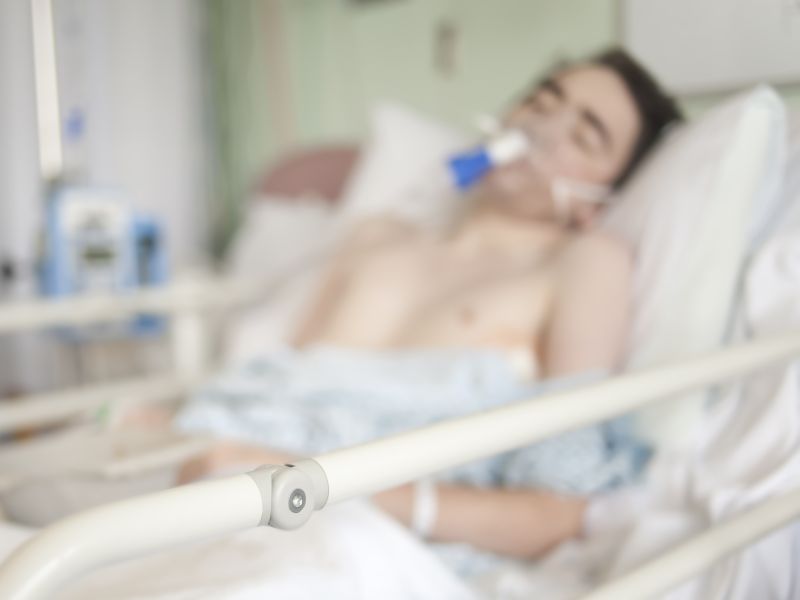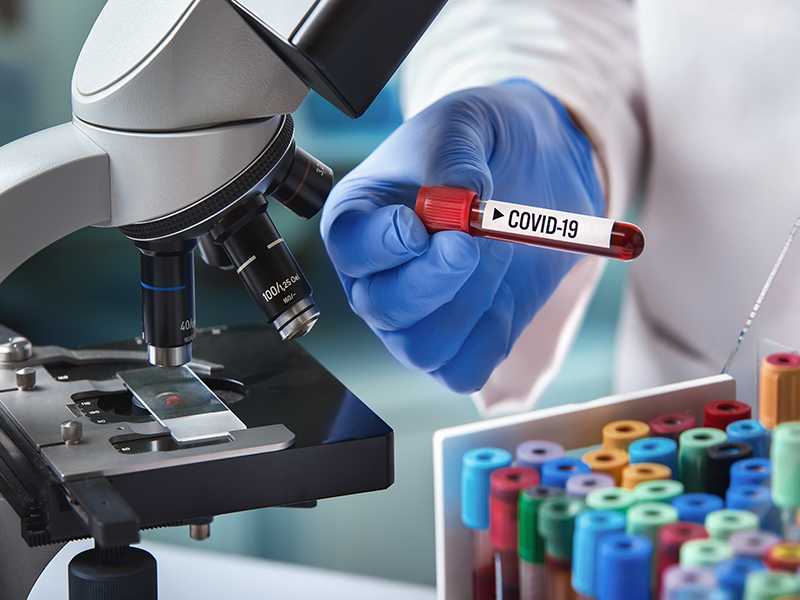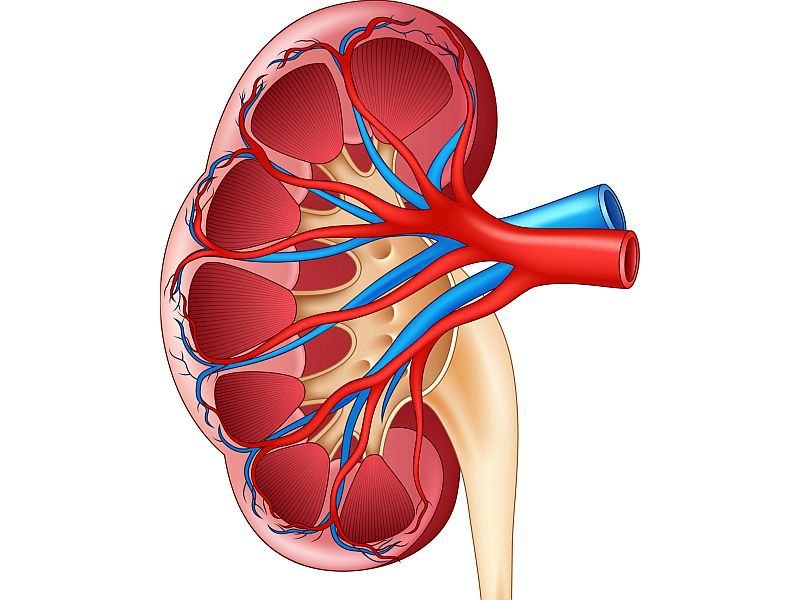Get Healthy!
154 Results for search "Immune Disorders".
Health News Results - 154
A COVID-19 vaccine booster shot gives cancer patients -- especially those with blood cancer -- much-needed protection, new research reports.
"Our study demonstrates in clear terms how the booster shot can make all the difference for some people with compromised immune systems, such as people with cancer," study co-author Dr. Balazs Halmos said in a news release from Montefiore Health Syst...
- Robert Preidt
- |
- November 19, 2021
- |
- Full Page
Here's some comforting news for people who struggle with inflammatory bowel disease and worry that the immune-suppressing drugs they must take might blunt their response to COVID-19 vaccines: New research finds vaccination triggers a strong immune reaction in these patients.
"At eight weeks, following completion of a two-dose mRNA vaccine series, 99% of patients had detectable antibodies ...
- Robert Preidt
- |
- November 4, 2021
- |
- Full Page
Transplant patients and certain other folks may need four shots of COVID-19 vaccine for optimal protection, new research suggests.
People with weakened immune systems who've received both doses of two-dose COVID-19 vaccines aren't adequately protected against severe illness. They should be given a third shot plus a booster, according to the study.
"These findings indicate that while...
- Robert Preidt
- |
- November 3, 2021
- |
- Full Page
Severely immunocompromised people may require a fourth mRNA coronavirus shot, the U.S. Centers for Disease Control and Prevention says.
The agency didn't provide an official recommendation about a fourth shot in its updated guidelines, but did say that people should talk to their doctors to determine if one is necessary, CNN reported.
In August, the CDC authorized a third d...
- Robert Preidt and Robin Foster
- |
- October 27, 2021
- |
- Full Page
Nine of 10 patients with so-called "bubble boy" immune disease who received gene therapy about a decade ago are still disease-free, researchers report.
The gene therapy was developed at the University of California, Los Angeles (UCLA), to treat the rare and deadly immune system disorder formally known as adenosine deaminase--deficient severe combined immunodeficiency (ADA-SCID).
It'...
- Robert Preidt
- |
- October 21, 2021
- |
- Full Page
A study of millions of people vaccinated against COVID-19 has identified those at greatest risk of hospitalization and death after breakthrough infection.
The most vulnerable are those who are immunosuppressed from chemotherapy, a recent bone marrow or solid organ transplant, or HIV/AIDS. Also at risk are people with neurological disorders (such as dementia and Parkinson's disease), nur...
- Steven Reinberg
- |
- September 20, 2021
- |
- Full Page
People with HIV have an increased risk of sudden cardiac death, a new study warns, especially if the virus isn't well-controlled.
Sudden cardiac death occurs when the heart unexpectedly stops beating, usually due to an abrupt electrical malfunction.
"People living with HIV are already known to have a higher risk of heart attack, stroke, heart failure, blood clots in the lungs and pe...
- Robert Preidt
- |
- September 8, 2021
- |
- Full Page
An alliance of leading U.S. cancer centers has updated guidance about COVID-19 vaccine boosters for cancer patients and the people around them.
The National Comprehensive Cancer Network's new recommendations are intended for health care providers.
"COVID-19 can be very dangerous, especially for people living with cancer, which is why we're so grateful for safe and effective vaccines...
- |
- September 7, 2021
- |
- Full Page
COVID-19 vaccines trigger antibody production in most people who have weakened immune systems, but a new study reveals that their responses are weaker than in healthy people.
"Some of our patients have been hesitant about getting vaccinated, which is unfortunate because they are at increased risk of having more severe cases of COVID-19 if they happen to get infected, compared to those not...
- Robert Preidt
- |
- September 1, 2021
- |
- Full Page
The U.S. Food and Drug Administration on Thursday authorized a third "booster" shot of coronavirus vaccines for people with weakened immune systems, as the highly contagious Delta variant continues to surge across the country.
Expanding the emergency use of the Pfizer and Moderna vaccines should help protect those patients who are considered most vulnerable to COVID-19 infection. The auth...
- Ernie Mundell and Robin Foster HealthDay Reporters
- |
- August 13, 2021
- |
- Full Page
The U.S. Food and Drug Administration plans on Thursday to authorize a third "booster" shot of coronavirus vaccine for people with weakened immune systems, as the highly contagious Delta variant surges across the country.
Expanding the emergency use of the Pfizer and Moderna vaccines should help protect those patients who are considered most vulnerable to COVID-19 infection and most likel...
- Ernie Mundell and Robin Foster HealthDay Reporters
- |
- August 12, 2021
- |
- Full Page
A third dose of a two-shot COVID vaccine significantly boosts transplant patients' protection against SARS-CoV-2, according to a new study.
"We knew from previous studies that two doses were not enough to produce a good immune response against COVID-19 in transplant patients," said study co-senior author Dr. Deepali Kumar. She is director of transplant infectious diseases at the Universit...
- Robert Preidt
- |
- August 12, 2021
- |
- Full Page
In a first, researchers have used genetically tweaked immune system cells to send a woman's severe lupus into remission.
The treatment -- called CAR T-cell therapy -- is already approved in the United States for fighting certain cases of blood cancer. It involves removing a patient's own immune system T-cells, genetically altering them to target the cancer, then infusing them back into th...
- Amy Norton HealthDay Reporter
- |
- August 5, 2021
- |
- Full Page
Giving a third dose of COVID-19 vaccines to adults with weakened immune systems -- the immunocompromised -- will be up for discussion during a U.S. Centers for Disease Control and Prevention advisory panel meeting next week.
At the meeting scheduled for July 22, the Advisory Committee on Immunization Practices will focus on the 2% to 4% of U.S. adults with weakened immune systems. These i...
- Robert Preidt
- |
- July 16, 2021
- |
- Full Page
Here's some reassuring news for parents: Most heart problems in children with a rare inflammatory condition triggered by COVID-19 infection resolve within a few months, a new study finds.
Multisystem inflammatory syndrome in children (MIS-C) causes inflammation throughout the body, and many patients develop a range of non-respiratory symptoms such as abdominal pain, skin rashes, heart abn...
- Robert Preidt
- |
- July 15, 2021
- |
- Full Page
COVID-19 vaccinations may not offer as much protection to people with compromised immune systems, but just how much appears to be driven by the type of underlying condition, new research suggests.
"People with conditions that compromise their immune systems exhibit a wide spectrum of antibody responses to COVID-19 vaccination, ranging from only 1 in 5 lung transplant patients having an a...
- Denise Mann HealthDay Reporter
- |
- July 7, 2021
- |
- Full Page
An experimental drug can prevent intestinal damage caused by celiac disease, an early trial has found -- raising hopes that it could become the first medication for the serious digestive disorder.
With celiac disease, the immune system attacks the lining of the small intestine when a genetically susceptible person eats gluten -- a protein found in wheat, rye and barley.
The symptoms...
- Amy Norton HealthDay Reporter
- |
- July 1, 2021
- |
- Full Page
Because they're often given drugs that suppress their immune systems, people battling a blood cancer known as multiple myeloma have varying responses to the COVID-19 vaccine, new research shows.
Some patients had no evidence at all of COVID-fighting antibody production after getting two doses of vaccine, the new study found.
In a minority of cases, fully vaccinated myeloma patients ...
- Ernie Mundell and Cara Murez HealthDay Reporters
- |
- June 30, 2021
- |
- Full Page
Early symptoms of multiple sclerosis may commonly be missed for years before the right diagnosis is made, a new study suggests.
Researchers found that patients with MS had a higher-than-average number of medical appointments, with doctors of various specialties, for up to five years before their diagnosis.
And for the most part, those visits were for neurological symptoms consistent...
- Amy Norton HealthDay Reporter
- |
- June 25, 2021
- |
- Full Page
When a baby is born, the mother's body provides a pathway into the world, but the journey also exposes them to beneficial bacteria that live in and on their mom. But that critical exchange doesn't happen during a cesarean section delivery.
Now, researchers report that swabbing babies delivered via C-section with gauze that has been seeded with their mother's vaginal fluids delivers the sa...
- Cara Murez HealthDay Reporter
- |
- June 23, 2021
- |
- Full Page
A diet designed to boost brain health appears to benefit people with multiple sclerosis (MS), new research suggests.
For the study, a team from Icahn School of Medicine at Mount Sinai in New York City examined 185 people diagnosed with MS within the past five years. Each had MRI brain scans and responded to detailed questionnaires.
The upshot: Those who ate more of the "good" foods ...
- Cara Murez
- |
- June 18, 2021
- |
- Full Page
Researchers say an extra dose of two-dose COVID-19 vaccines may improve immune system protection for organ transplant patients, a group that's so far responded poorly to two-dose vaccines.
"Our findings suggest clinical trials are warranted to determine if transplant recipients should receive COVID-19 vaccine booster doses as standard clinical practice, similar to what is currently done w...
- Robert Preidt
- |
- June 15, 2021
- |
- Full Page
People who have Crohn's disease often seek to ease their symptoms by changing what they eat, and new research suggests the Mediterranean diet may be their best bet.
The study evaluated one of the commonly used diets for Crohn's disease, known as the specific carbohydrate diet (SCD), comparing it with the Mediterranean diet, which is sometimes recommended by doctors for its heart health be...
- Cara Murez HealthDay Reporter
- |
- June 8, 2021
- |
- Full Page
New research suggests that many people who've undergone an organ transplant do not get an immune response from COVID-19 vaccines that's strong enough to ward off a "breakthrough" infection.
In a new review of 14 such cases, these breakthrough COVID-19 infections occurred in 10 recipients of new kidneys, two liver recipients, one lung recipient and one heart recipient, said a research team...
- Ernie Mundell
- |
- June 8, 2021
- |
- Full Page
An experimental antibody therapy may help ease skin symptoms from the autoimmune disease lupus, a small preliminary trial suggests.
Researchers found that a higher-dose version of the drug spurred a "clinically meaningful" symptom improvement for 87% of patients after one month.
But they also stressed that the findings are based on a small "phase 1" trial - a type of study designed ...
- Amy Norton HealthDay Reporter
- |
- May 27, 2021
- |
- Full Page
A widely used medicine for autoimmune diseases may lower people's immune response to the Pfizer mRNA COVID-19 vaccine, a new study suggests.
The drug, called methotrexate, is often given to patients with immune-mediated inflammatory conditions such as rheumatoid arthritis and psoriasis/psoriatic arthritis.
"Our findings suggest that different strategies may need to be explored in pa...
- Ernie Mundell and Robert Preidt HealthDay Reporters
- |
- May 26, 2021
- |
- Full Page
A pill called upadacitinib, already approved for treating rheumatoid arthritis, might also ease another common immunological condition -- eczema.
In two phase 3 clinical trials, patients with moderate to severe eczema showed rapid and significant improvements after taking the drug, said researchers at Mount Sinai in New York City.
The clinical trials were funded by the dug's maker,...
- Ernie Mundell and Robert Preidt HealthDay Reporters
- |
- May 21, 2021
- |
- Full Page
A small but significant percentage of Americans take medications that can hamper their immune system and its response to COVID-19 vaccines, researchers say.
Their analysis of data from more than 3 million adults under 65 with private insurance found that nearly 3% take immunosuppressive drugs. Those include chemotherapy medications and steroids such as prednisone.
Two-thirds took an...
- Robert Preidt
- |
- May 20, 2021
- |
- Full Page
New insight into a rare and dangerous disorder that can occur in kids with COVID-19 could improve treatment of the condition, researchers say.
Many children infected with SARS-CoV-2 (the virus that causes COVID-19) go undiagnosed or have no symptoms, but about one in 1,000 develop a condition called multisystem inflammatory syndrome in children (MIS-C) within four to six weeks.
Symp...
- Robert Preidt
- |
- May 18, 2021
- |
- Full Page
Cora Oakley is a rough-and-tumble 4-year-old who loves gymnastics and outdoor activities, particularly if it involves bouncing on a trampoline.
It's hard to tell from looking at her that she was born without an immune system. Kids with this condition can acquire dangerous, life-threatening infections from day-to-day activities as simple as going to school or playing with friends.
"I...
- Dennis Thompson HealthDay Reporter
- |
- May 12, 2021
- |
- Full Page
COVID-19 infections may last longer in young people with weakened immune systems, and that extended period could lead to more mutations in SARS-CoV-2, according to the authors of a new case study.
The study included two children and a young adult who had weakened immune systems due to treatment for acute lymphoblastic leukemia. For months, they tested positive for SARS-CoV-2, the virus th...
- Robert Preidt
- |
- April 30, 2021
- |
- Full Page
A breakthrough psoriasis drug is better at treating the itchy and painful skin disease than medicines already on the market, according to results from two clinical trials.
There was a "night and day difference" in the results from bimekizumab compared against two established psoriasis drugs, secukinumab (Cosentyx) and adalimumab (Humira), said Dr. Mark Lebwohl, a co-researcher in one of t...
- Dennis Thompson HealthDay Reporter
- |
- April 26, 2021
- |
- Full Page
Two people in the Johnson & Johnson COVID-19 vaccine trial developed Guillain-Barré syndrome, but it's highly doubtful the vaccine is to blame, according to a just-published case study.
Although both people were in the same trial, one was given the vaccine and the other was given a placebo of saline solution.
"That strengthens the possibility that the case in our report may have be...
- Steven Reinberg
- |
- April 7, 2021
- |
- Full Page
More Asian and Hispanic people with lupus die prematurely than white patients, a new study reveals.
Death rates in San Francisco were nearly six times higher than expected among Hispanic patients with lupus and four times higher than expected among Asian women with lupus, the researchers found.
The higher death rate among racial and ethnic minority groups might result from more seve...
- Steven Reinberg HealthDay Reporter
- |
- February 23, 2021
- |
- Full Page
Gene variants associated with a rare autoimmune disorder called Addison's disease have been pinpointed, according to researchers.
"By studying the single largest collection of samples from patients with Addison's disease, we've been able to carry out the first genetic study of the disease that spans the entire human genome," said study co-leader Daniel Eriksson, a researcher in the experi...
- Robert Preidt
- |
- February 16, 2021
- |
- Full Page
Here's some good news for people who've had solid organ transplants and have weakened immune systems: mRNA coronavirus vaccines are safe for these vulnerable folks, new research shows.
The study included 187 transplant recipients who received an initial dose of either the Moderna or Pfizer mRNA vaccines between Dec. 16, 2020 and Jan. 16, 2021.
The participants, median age 48, were r...
- Robert Preidt
- |
- February 12, 2021
- |
- Full Page
Stem cell transplants may have long-lasting benefits for some people with aggressive cases of multiple sclerosis, a new study suggests.
Italian researchers found that among 210 multiple sclerosis (MS) patients who received a stem cell transplant -- with cells from their own blood -- two-thirds saw no worsening in their disability 10 years out.
That included 71% of patients with rela...
- Amy Norton HealthDay Reporter
- |
- January 21, 2021
- |
- Full Page
Just over 200,000 Americans have the autoimmune disorder lupus, and minority women are at highest risk, according to a new study.
It's the first estimate of how widespread the disease is in the United States. The number comes close to reclassifying lupus as a rare disease, defined as an illness affecting 200,000 Americans or fewer, the researchers said.
"Our study potentially redefi...
- Robert Preidt
- |
- January 21, 2021
- |
- Full Page
Blood vessel damage and inflammation in the brains of deceased COVID-19 patients suggest the damage is not caused by the virus, but the body's immune response to it.
Researchers from the U.S. National Institutes of Health (NIH) consistently found signs of damage caused by thinning and leaky brain blood vessels in tissue samples from patients who died shortly after getting COVID-19.
...
- Steven Reinberg
- |
- December 31, 2020
- |
- Full Page
After starting a drug that's officially approved to treat a type of blood cancer, a young man with type 1 diabetes was able to stop using insulin.
He's been off insulin since August 2018 -- more than two years.
Dr. Lisa Forbes -- his doctor and co-author of a letter describing his case in the Oct. 8 issue of the New England Journal of Medicine -- stopped short of calling ...
- HealthDay News
- |
- December 17, 2020
- |
- Full Page
Rheumatoid arthritis patients who are in remission have significantly higher body temperatures than people without the joint disease, new research shows.
The study included 32 rheumatoid arthritis patients who were in remission and a healthy "control" group of 51 people without rheumatoid arthritis, who all had thermal scans of different areas of their feet.
"These tests demonstrate...
- Robert Preidt
- |
- December 15, 2020
- |
- Full Page
The first known case of COVID-19 triggering a recurrence of Guillain-Barré syndrome has been reported by researchers.
Guillain-Barré syndrome -- which can be sparked by viral and bacterial infections -- is a rare disorder where the body's immune system attacks nerves. It can result in respiratory failure and death.
There have been several reports of COVID-19 patients developing Gu...
- Robert Preidt
- |
- December 10, 2020
- |
- Full Page
When the new coronavirus pandemic first began, respiratory distress immediately became the hallmark of severe COVID-19 illness. News reports focused on the inability to breathe, low oxygen saturation levels and the alarming need for ventilators.
But six months later, experts are becoming increasingly concerned about a very different COVID-19 phenomenon, one that spares the lungs only ...
- Alan Mozes
- |
- October 26, 2020
- |
- Full Page
Scientists knew that dangerous T-cells lived in the pancreases of people with type 1 diabetes, but a new study shows they also take up residence in the pancreases of healthy individuals.
Researchers from the La Jolla Institute for Immunology in California used a new staining technique to show where these cells had gathered in human tissue samples. They were surprised that even tissue ...
- Cara Roberts Murez
- |
- October 21, 2020
- |
- Full Page
A recently approved rheumatoid arthritis medication appears to be an effective second-line therapy when biologic treatments start to fail, a new clinical trial reports.
Arthritis sufferers treated with upadacitinib had a significantly greater reduction in their symptoms and disease activity than people treated with a standard disease-modifying antirheumatic drug (DMARD), said co-resea...
- Dennis Thompson
- |
- October 19, 2020
- |
- Full Page
After starting a drug that's officially approved to treat a type of blood cancer, a young man with type 1 diabetes was able to stop using insulin.
He's been off insulin since August 2018 -- more than two years.
Dr. Lisa Forbes -- his doctor and co-author of a letter describing his case in the Oct. 8 issue of the New England Journal of Medicine -- stopped short of cal...
- Serena Gordon
- |
- October 8, 2020
- |
- Full Page
People suffering from a psychiatric disorder could be more than twice as likely to die if they become infected with COVID-19, a new study suggests.
Folks diagnosed with any type of psychiatric problem -- anxiety or depression, dementia, psychosis -- were up to 2.3 times more likely to die in the hospital from COVID-19, researchers found.
"Those who had COVID who had a prior ...
- Dennis Thompson
- |
- September 30, 2020
- |
- Full Page
Elderly people who get COVID-19 have lower levels of important immune cells, which may explain why they are more likely than younger patients to have severe symptoms or die, new research suggests.
For the study, the researchers analyzed blood samples from 30 people with mild COVID-19, ranging in age from the mid-20s to late-90s. Compared with healthy people, all of the COVID-19 patien...
- Robert Preidt
- |
- September 30, 2020
- |
- Full Page
Children who need to take oral steroids for chronic or life-threatening conditions can experience serious side effects, according to new research.
Children with autoimmune disorders such as juvenile arthritis, psoriasis or inflammatory bowel disease are often prescribed a steroid to keep the illness under control.
But the odds that a child might develop diabetes was nearly s...
- Serena Gordon
- |
- September 24, 2020
- |
- Full Page
Adding a newer drug to standard therapy might help control kidney complications caused by the autoimmune disease lupus, a new clinical trial suggests.
The researchers found that adding the drug, called belimumab, improved patients' likelihood of responding to treatment. That meant a reduction in protein in the urine -- a tell-tale sign of kidney inflammation -- and no significant loss...
- Amy Norton
- |
- September 16, 2020
- |
- Full Page



